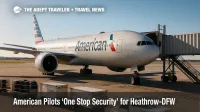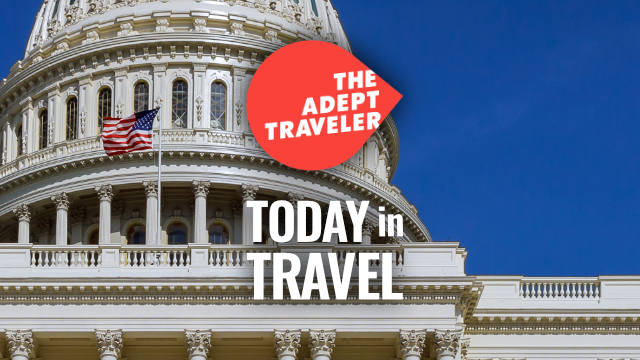U.S. Customs and Border Protection
Traveling to or from the United States involves not only excitement and anticipation but also necessary interactions with U.S. Customs and Border Protection (CBP). Whether you are a U.S. citizen returning home, a tourist visiting for the first time, or a business traveler, understanding the role and operations of U.S. Customs and Border Protection can make your experience smoother and more efficient. This comprehensive overview will shed light on the essential aspects of CBP as they pertain to travel, ensuring you are well-prepared for your journey.
The Role of U.S. Customs and Border Protection
U.S. Customs and Border Protection is a federal law enforcement agency under the Department of Homeland Security (DHS). It is tasked with managing and securing the nation's borders, facilitating lawful international travel and trade, and enforcing U.S. laws and regulations. When it comes to travel, CBP's primary responsibilities include processing travelers at ports of entry, ensuring compliance with immigration laws, and preventing illegal activities such as smuggling and trafficking.
Pre-Travel Preparations
Before embarking on your trip, there are several steps you can take to ensure a seamless experience with U.S. Customs and Border Protection. First, verify that your travel documents are in order. A valid passport is essential for all international travel, and depending on your nationality, you may also need a visa or an Electronic System for Travel Authorization (ESTA) if you are traveling under the Visa Waiver Program. Double-check that your passport has not expired and that it meets the entry requirements of your destination country and the United States.
Next, familiarize yourself with the customs regulations of both the U.S. and your destination. Be aware of items that are restricted or prohibited, and declare all goods and currency over $10,000 you are bringing into or out of the country. This can prevent potential delays, fines, or confiscation of items at the border.
Customs Declarations and Inspections
Upon arriving in the United States, travelers must complete a U.S. Customs and Border Protection declaration form, either electronically via the Automated Passport Control (APC) kiosks, the Mobile Passport Control (MPC) app, or on a paper form provided by the airline. This declaration includes information about your travel itinerary, the purpose of your visit, and any goods you are bringing into the country.
After filling out the declaration, travelers proceed to the CBP inspection area. Here, CBP officers will verify your identity, review your travel documents, and ask questions about your trip and items declared. They may also conduct a secondary inspection if there are discrepancies in your declaration, or if they need to further examine your luggage. Cooperation and honesty are key during this process to ensure a quick and hassle-free entry.
Traveler Programs
U.S. Customs and Border Protection offers several programs to expedite the processing of frequent travelers. Global Entry, for instance, provides expedited clearance for pre-approved, low-risk travelers upon arrival in the United States. Participants in Global Entry can use dedicated kiosks at select airports, where they scan their passport, provide fingerprints, and complete a customs declaration. This often results in significantly shorter wait times and a more efficient entry process.
Other traveler programs include TSA PreCheck, NEXUS, and SENTRI. TSA PreCheck offers expedited security screening for flights departing from U.S. airports, allowing travelers to keep on their shoes, belts, and light jackets, and to keep their laptops and liquids in their carry-on bags. NEXUS and SENTRI provide similar expedited processing for travelers between the U.S. and Canada, and between the U.S. and Mexico, respectively. Enrolling in these programs can save valuable time and reduce stress during your travels.
Travel Restrictions and Prohibited Items
To protect the United States from potential threats, U.S. Customs and Border Protection enforces a range of travel restrictions and closely monitors the importation of goods. Certain items are strictly prohibited, such as narcotics, some agricultural products, and endangered species products. Other goods may be subject to restrictions, including certain foods, medications, and cultural artifacts.
If you are unsure whether an item is allowed, it is best to declare it and ask a CBP officer for guidance. Attempting to bring prohibited items into the country, or failing to declare restricted items, can result in fines, seizure of the goods, and possible criminal charges. Understanding and complying with these regulations helps protect the nation's security and expeditiously process travelers.
Resources and Assistance
U.S. Customs and Border Protection provides numerous resources to assist travelers in navigating the complexities of international travel. The CBP website offers comprehensive information on travel requirements, customs regulations, and traveler programs. Additionally, the website provides access to forms, applications, and a Contact Us page where you can seek specific guidance or report issues.
Mobile applications like CBP’s Mobile Passport Control (MPC) app can streamline the entry process by allowing you to submit your passport and travel information electronically upon arrival. This not only speeds up the re-entry process but also reduces contact points, aligning with health safety measures.
Global Coordination and Future Trends
As global travel trends continue to evolve, U.S. Customs and Border Protection is continually adapting to new challenges and opportunities. CBP collaborates with international counterparts to share intelligence, harmonize security measures, and facilitate lawful travel. Innovations like biometric screening and e-passports aim to enhance security while preserving the efficiency and convenience that travelers expect.
This forward-thinking approach not only helps maintain the integrity of U.S. borders but also supports the broader goal of keeping the global travel ecosystem secure and resilient. As technologies and protocols advance, travelers can look forward to an even more seamless and secure experience when dealing with U.S. Customs and Border Protection.
For anyone planning to travel, having a thorough understanding of U.S. Customs and Border Protection processes and regulations is crucial. From pre-travel preparations to navigating customs declarations, and from enrolling in traveler programs to adhering to restrictions, each step is designed to ensure that your journey is safe, legal, and as efficient as possible.
American Pilots 'One Stop Security' for Heathrow-DFW

Potential Shutdown: Minimal Impact on Travel Plans

Travel News: TSA PreCheck, Jamaica, American Airlines AAdvantage

Travel News: Global Entry, CDC Travel Advisory, and Qatar Airways

